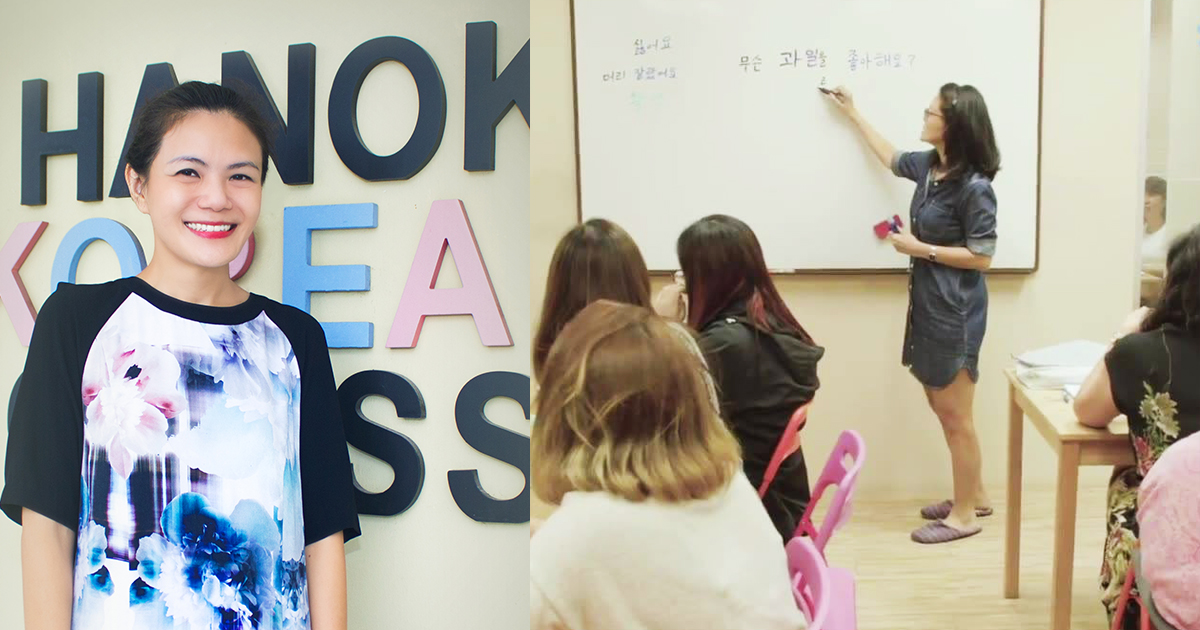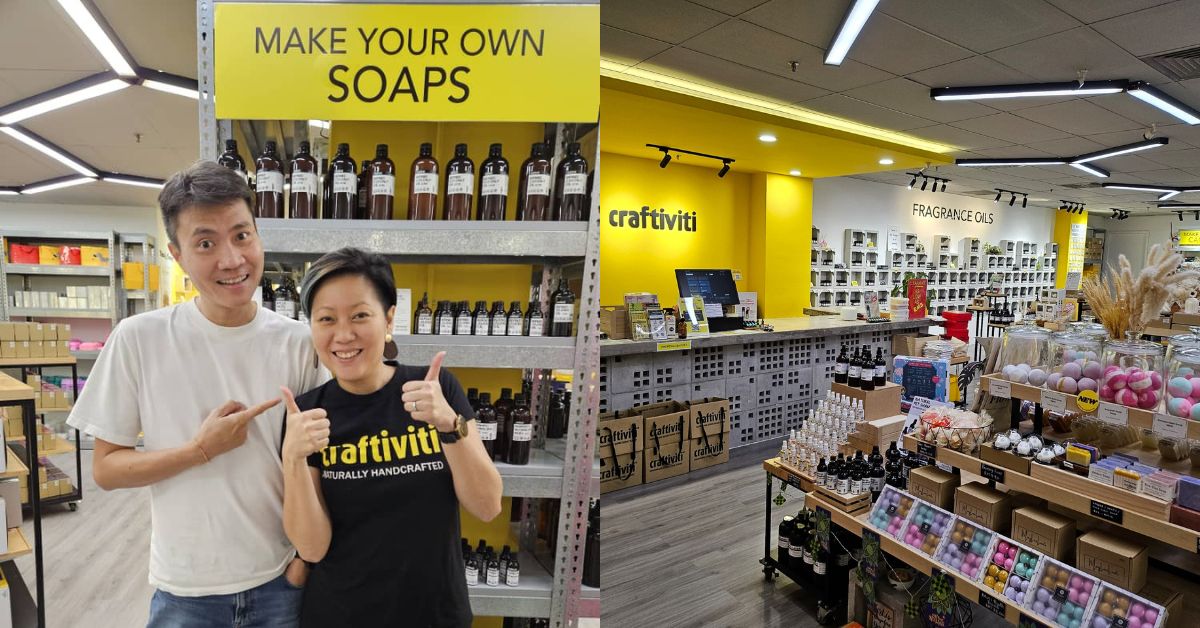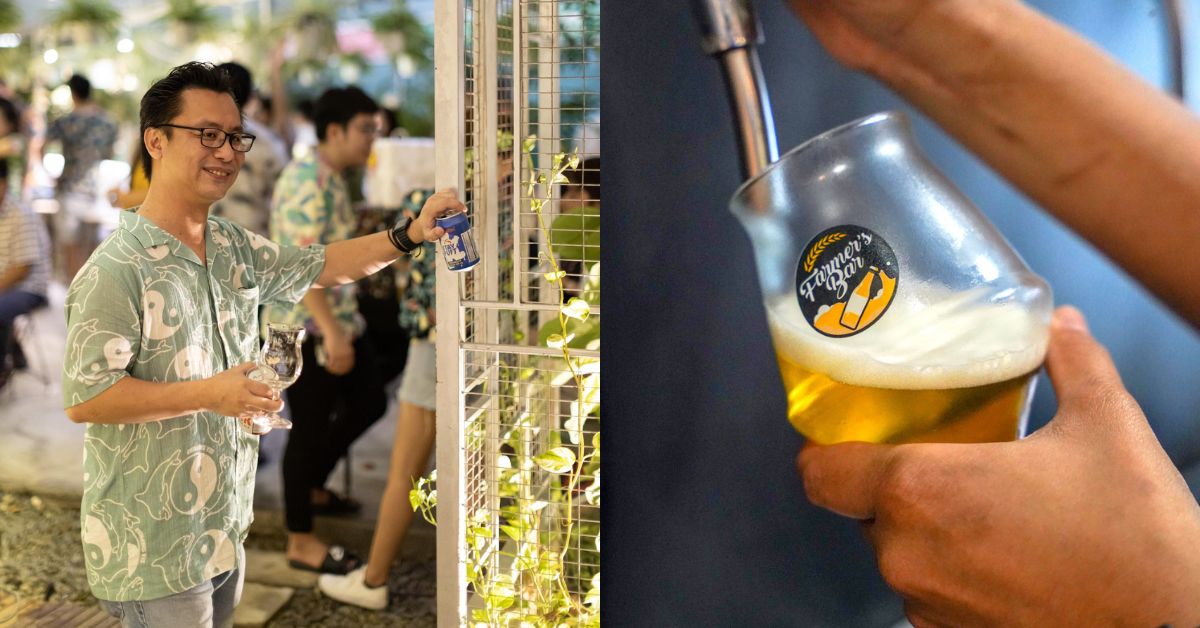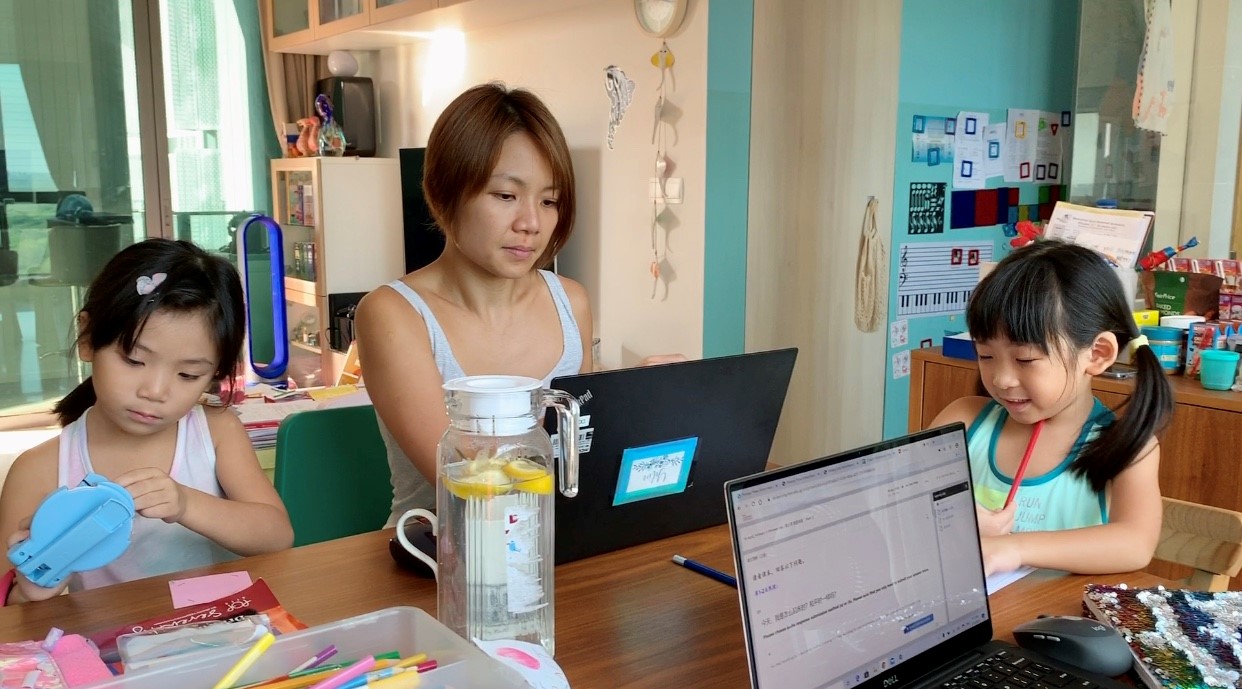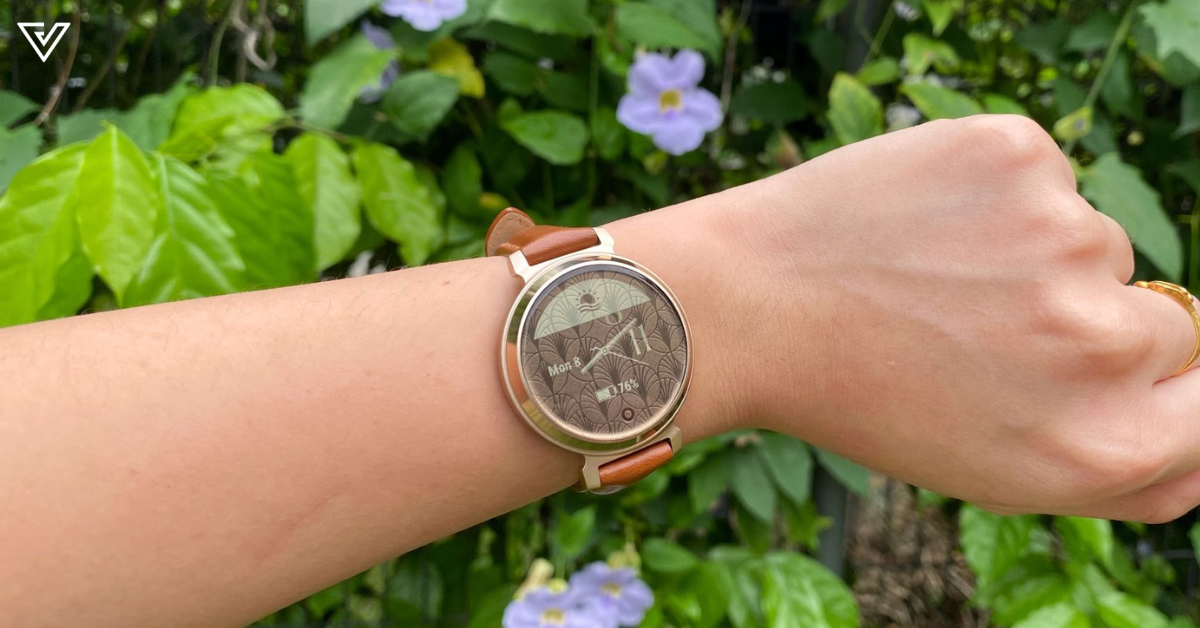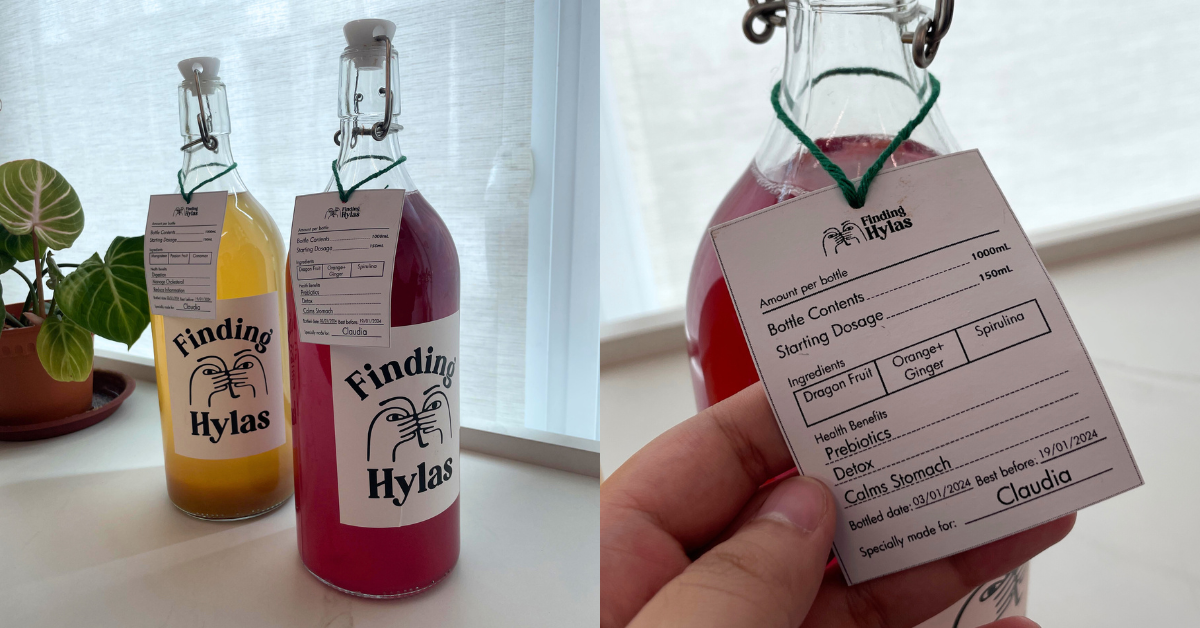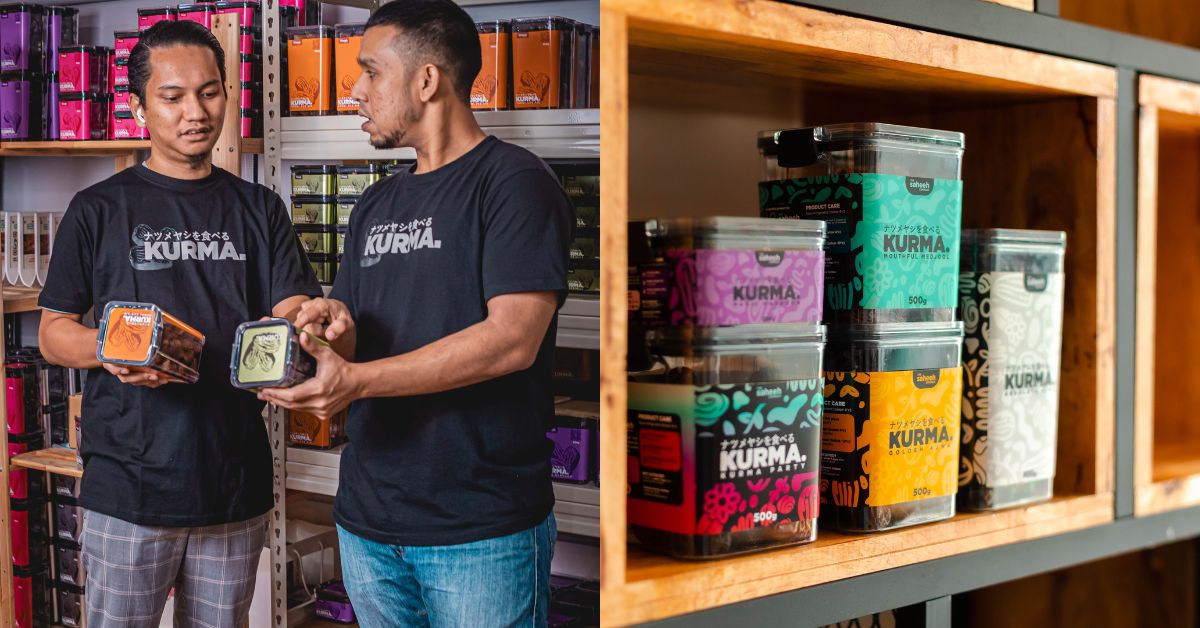As the product of an education system that is inclined to reward rote learning, I can safely say that I have mastered the necessary study techniques when it comes to making revision-friendly notes.
However, these methods tend to be less effective when it comes to learning new languages.
While it can be argued that being able to recite the rules of grammar or a laundry list of vocabulary words is the key to mastering a new tongue, languages are used by regular people, and regular people don’t need to know every word in the dictionary to go about their daily lives.
Hence, learning is actually more effective when you converse in the language, no matter how mundane the topics might be.
Founder of HANOK Korean Language School Ong Wann feels strongly about this, and expressed that as a Singaporean, she understands the struggle Korean language learners feel when it comes to speaking.
“Speaking is the most difficult part of picking up a language when you are not immersed in the environment.”
Vocabulary and grammar has to be processed in your brain to form a sentence, and that has to then travel down through your vocal cords before your mouth to shape the words out.
In fact, this theory was proven true when I struggled to answer her questions in Korean, in spite of having learnt the language on and off for a few years now.
This is a reason why at HANOK, conversation is more important vis-a-vis poring through textbooks and practice worksheets.

“I always tell my teachers: ‘Explain less, get the students to practice (speaking) more.'”
Studied Korean “For Fun” After Watching A K-Drama In 2001
Wann’s infectious enthusiasm and passion for teaching Korean was apparent throughout the interview, and she recalled how her journey in mastering the language started after she watched a Korean drama.
Then, the NTU graduate was working as an event coordinator at Music and Movement, a company co-founded by renowned composer and singer Dick Lee.
It was at this job that she also had her “first direct encounter” with Korean talents when the NANTA theatre show first came to Singapore.
Back then, Korean culture was a lot less well-known as compared to Japanese pop culture, which was huge.
In 2001, K-drama ‘All About Eve’ also came into her life, and this spurred her on to study the language “for fun”.

“My teacher, Ebony Bae, was very passionate (about teaching) and I was very keen to learn,” she recalled.
Wann shared that she remembered thinking how “it had been awhile since [she had] been so motivated to study” – a huge contrast to when she was a self-professed terrible student in school.
It was around then that she also quit her job, and, like many experiencing a dreaded quarter-life crisis, was “wondering what [she] truly wanted to do with [her life]”.
I was always told since young, my life goal was to study hard and finish school. I thought that I would be living the high life after I attained that goal.
“But life didn’t turn out as I had expected, so I was feeling lost and unfulfilled.”
Having no work commitments, she tried to find some direction with her new passion in the Korean language.
From Korean Language Student To Tutor
To fully immerse herself in the language and culture, Wann took up the Korean language course at Sogang University, and obtained a graduate diploma after one and a half years.
When asked about the difficulties she faced when studying Korean, she shared that even after 6 months in the country, she felt that her pronunciation wasn’t improving and needed to practice reading passages aloud multiple times to “train [her] mouth muscles”.
“It is common to hit a plateau [but] from my own experience, [you just need to] continue practicing the language, and growth will happen without you even realising it.”

On her return in mid-2003, she was hit with the realisation that her experience at Sogang University wasn’t just more “structured, fun, and fulfilling”, it was also “much more effective than [her] learning experience in Singapore”.
I [even] had the audacity to think that I could do a good job teaching Korean!
Not wanting to waste any time, she immediately started preparing teaching materials while putting up “3-liner newspaper classified ads”.
Interest in the Korean language and culture was also steadily growing in Singapore then, thanks to hit K-drama ‘Winter Sonata’, the debut of popular K-pop band DBSK (Dong Bang Shin Ki), and the Korean football team’s outstanding performance in the 2002 World Cup.
Eventually, she was presented the opportunity to be her ex-teacher’s (Ebony Bae) part-time teaching assistant at NUS Extension, and it was there that she gained even more invaluable experience in teaching the language as a non-native speaker.
First S’porean To Complete A Master’s Course In Korean Language And Literature
In 2005, she started working full-time at Apple, where she translated and analysed Korean financial statements, learning a lot of Korean financial and business terms in the process.
But her Korean learning journey wasn’t just about to end at the graduate diploma.
Teacher Bae got in touch, and informed her about a 6-month scholarship programme that was available for non-native Korean language teachers overseas.
But there was a tricky requirement – she needed to fly over in a month’s time.
“[So,] I quit my job and went.”
Becoming a student again ignited her love for the language, and she decided to pursue a Masters degree in Korean Language and Literature at Kyunghee University.
However, studying and renting a place in Korea wasn’t cheap, and she found herself needing to apply for yet another scholarship – this time, by the Korea Foundation.
“I had to go around campus asking for endorsements from professors,” she recalled.
In the application form, we also had to write our future plans for promoting the Korean language and culture. I wrote my grand plans so that I could get the scholarship, but I had no idea I was going to start a Korean school at all!
The scholarship mainly paid for her tuition fees with little else to spare, and she was soon back to her “cash-strapped student” days, living in a semi-basement unit which was “constantly damp and had mouldy walls”.
“I didn’t like the state I was in,” she sighed.
Just like the season, Spring 2009 ushered in a chance for change when her ex-colleague at Apple texted her, saying that their department was looking for a Korean speaker.
Wann immediately grabbed the job offer in spite of having an examination and incomplete Master’s thesis in tow.
After a few weeks back in Singapore, she returned to Seoul for a few days and completed what remained of her student life, effectively becoming the first Singaporean to complete a Master’s course in Korean Language and Literature and receive Korean Language Teachers Training at Kyung Hee University.
Due to her proficiency, Wann has also done translation and interpretation jobs for large-scale events like MAMA 2011, Korean Music Wave 2011, and BIG BANG’s ALIVE Concert in 2012.
Building A ‘Hanok’ For Korean Language Learners In Jurong
A chance to get back into teaching came from Teacher Bae again, who suggested that Wann take over her teaching position at Singapore Polytechnic.
“I was very excited to start again – an opportunity presented itself at the right time, and I am grateful I was ready for it then.”
Still working full-time at Apple then, Wann taught at Singapore Polytechnic after office hours and her confidence in teaching the language soared.
I learned that I can be just as good, if not a better teacher than a native Korean.
But the real turning point that kickstarted her entrepreneurial journey came late one night, when she was reading a work email about a blunder she made.
“It wasn’t a big mistake, but I teared up. I thought my time and energy could be better used in teaching.”
With this, she took a leap of faith, trading her cushy job for the unknown waters of entrepreneurship.
“I wasn’t planning for a big windfall, but in my gut, I knew I would not fail. I knew instinctively that I was on the right track – it is like a ‘calling’.”
Realising that all she needed was a small room she could teach a few students in, she looked for a place in Jurong where she lived.
Calling it ‘HANOK’ (a Korean traditional house), she opened its doors in Oct 2010 and the first students she taught were introduced by a student from Singapore Polytechnic.
“I was genuinely grateful for this group of early students who believed in a new school.”
As a non-native Korean speaker, she was also aware that potential students might be skeptical of her skills in spite of her qualifications.
The idea of Korean language lessons taught by a non-Korean was unheard of then, and wasn’t a marketable idea for a new school.
“As a non-native teacher leading the school, I wasn’t worried about existing students being unreceptive. I was more concerned about getting people to become our students.”

Wann was also wary about revealing her nationality, but eventually became more confident and “came out of [her] shell” after seeing students succeed in mastering the language.
Taught Thousands Of Students So Far
Wann revealed that while starting up was “relatively easy” because it was something she was passionate about, the challenge came in “toggling between the dual role of a teacher who wants to give more, and a profit-driven business-owner”.
Even now, she struggles with juggling these two constantly clashing hats.

“I used to embark on projects if I found meaning in it, even if it made little business sense. Now, I am a little more careful about how I use our time and energy.”
It is constant work to strike a balance and understand that a business needs to be profit-driven to be sustainable and provide for more people, including our students, teachers, staff and even the wider Korean learners community.
Soon, the business grew big enough that she needed to hire native Korean teachers to help her, and HANOK’s second outlet opened in the CBD in 2016.

Wann confessed that she has never calculated thoroughly the number of students that have studied at HANOK, but revealed that they have had about 1,700 students in the last 2 years.
“We are still on a hike up to the unknown peak of a mountain.”
What Sets HANOK Apart?: “Me!”
Compared to a decade ago, Korean language learners now have a good selection of schools to choose from, so I asked Wann about what she thinks sets HANOK apart.
“Me! Haha. [But] I think other school managers and owners are native Korean, and [thus,] none of them have learned Korean like a learner.”
Our native teachers bring their own strengths to the lessons, and I add value to our teaching by explaining to them how the students actually think and learn to make our classes more effective and efficient.
“Like our school name, I also try to create a homely and fun atmosphere by playing K-Pop on our speakers.”
Having run the school for almost 9 years now, I asked Wann about her proudest moment of running HANOK so far.

“[It’s] when students share stories of how they still remember what they learnt even after stopping classes. An ex-student told me she was so happy that she could help a Korean couple travelling in Singapore.”
Ending off the interview, Wann shared that the textbook she wrote for the school is currently being updated and will soon be re-published and commercially distributed.
“I am so excited and nervous about it. And now that I’ve let the cat out of the bag, it really has to happen.”
I’d like to thank Wann for her time!
HANOK Korean Language School – CBD
10 Anson Road, International Plaza, #03-55
Singapore 079903
HANOK Korean Language School – Jurong
133 Jurong Gateway Road, #04-293
Singapore 600133
